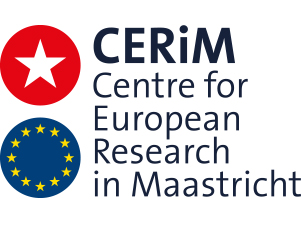30 November - 1 December 2017: Ellen Vos to present at Workshop on Unpacking the 'Accountability Paradox' in Expert-based Decision-making
− 2 min readThe workshop brings together top academics and practitioners to reflect on the possibilities and limits of establishing accountability for expert decision-making. Contributions combine discussions at a normative and conceptual level with more concrete and targeted investigations in the following areas: (1) Economic and Financial Governance; (2) Environment, Health and Safety Governance; (3) Internet, Digitization and Data Protection. The results of the workshop will generate a more systematic understanding of similarities and differences of institutional mechanisms by which experts can be and are called to account.
The entrenchment of expert knowledge in legal and quasi-legal decision-making is a key feature in a wide variety of areas, ranging from economic and financial governance to environment, health and safety regulation, or more horizontally as regards digital technologies and data protection At the European, transnational and international levels, expert-based decision-making processes are being shaped increasingly through a diversity of institutions and stakeholders, including agencies, private-public partnerships, think tanks, regulatory networks, or, more generally, assemblages of different actors. The direct or indirect production of legally relevant decisions by experts, and their exercise of public authority in various guises, has been recurrently considered as problematic. In particular, enabling accountability for expert-based decision-making remains a thorny issue, which requires urgent clarification.
This workshop aims at dissecting some of the salient conceptual, legal and practical problems in establishing accountability of the expert decision-maker complex. It tackles in particular the apparent ‘paradox’ whereby formal mechanisms and processes in place may have a limited potential to enable effective accountability of the expert decision-maker complex, among others because of the ‘knowledge asymmetry’ hurdle between experts and accountability fora.
The workshop brings together top academics and practitioners to reflect on the possibilities and limits of establishing accountability for expert decision-making. Contributions combine discussions at a normative and conceptual level with more concrete and targeted investigations in the following areas: (1) Economic and Financial Governance; (2) Environment, Health and Safety Governance; (3) Internet, Digitization and Data Protection. The results of the workshop will generate a more systematic understanding of similarities and differences of institutional mechanisms by which experts can be and are called to account.
The workshop is a joint activity of the Rethinking the Rule of Law in an Era of Globalisation, Privatisation, and Multiculturalisation and the Research Project Rethinking Global Technocracy: An inquiry into the Accountability of Global Regulatory Scientific Institutions (GRSIs).
Date: 30 November - 1 December, 2017
Location: Erasmus School of Law, Erasmus University Rotterdam
Attendance of the event is free, but registration is required! You can find the programme and registration form here (bottom of page).
